Forgotten Souls: Widows Of Nigerian Soldiers Hit With Hardship In Army Barracks
Unable to receive their late husbands' gratuities and entitlements, widows of soldiers killed in active service are faced with harsh conditions.
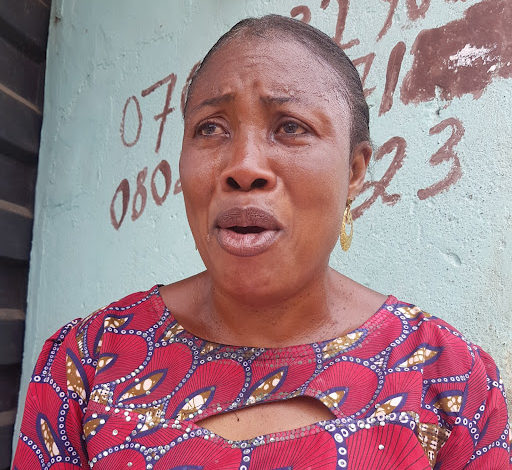
Nine years after Oladapo Joseph died as a senior officer in the Nigerian Army, his widow, Bolajoko, continues to suffer amid official neglect.
The couple tied the nuptial knot at Ilorin, capital of Kwara State, in 1983 as fresh graduates. Joseph worked as a teacher for eight years before joining the military in 1991.
“I already had two children for him before he was encouraged to join the army because the money he was making from his teaching job was not enough to take care of the family,” Bolajoko recalled.
She told HumAngle that her husband had it all planned like many others. He wanted to make some money to take care of his children and live together with them till old age.
His dream for the future began to look blurry in 1998 when he joined an army of soldiers in Sierra Leone.
In 1990, Nigeria spearheaded the formation of the Economic Community of West African States Monitoring Group (ECOMOG) – a 12,000-strong allied armed force with troops from majorly Nigeria and others from Ghana, Sierra Leone, The Gambia, Guinea, and Mali. It was to intervene and keep Charles Taylor’s bloodthirsty forces from plunging Liberia further into chaos.
The conflicts soon spread west to Sierra Leone, with young men, women, and children abducted from their parents and given no choice but to become killing machines.
The conflict in Sierra Leone had been raging for about seven years before Joseph, with the army number 91NA/32/4128, joined Nigerian soldiers, numbering about 700, that were deployed to the country.
The widow told HumAngle that her husband returned to Nigeria two years later with heart disease, following the difficult experiences encountered at war.
“They brought him back to Nigeria thinking he was not going to survive the illness but he did. He was later posted to Ikeja cantonment, 9 Brigade in Lagos. As his health continued to get worse, I was supplying water to different quarters at the barracks to assist my husband who was already battling with sickness,” Bolajoko said.
The soldier’s health became worse following a bomb blast that occurred at Ikeja cantonment on Jan. 27, 2002, and which took over 1000 lives.
While Joseph and his family members survived the blast, he was sick again and was told at the hospital that he had enlargement of the heart. He was thereafter placed under proper medication when they moved to Ojo Barracks.
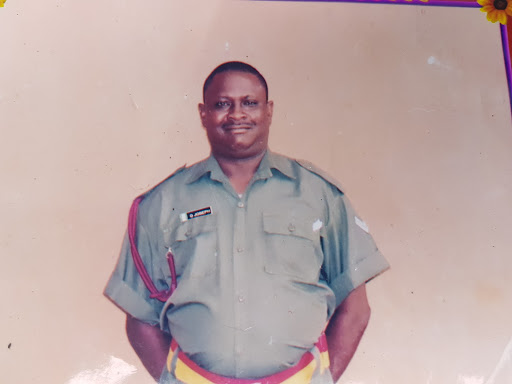
“My husband battled with this ailment until he collapsed and died at work on Aug. 2, 2012. He was buried by the military in Lagos cemetery,” the deceased’s widow said.
She told our reporter that her husband died as a Corporal at the age of 42. Soon after the burial, Bolajoko was advised by the Nigerian Army authorities to start processing her husband’s gratuity, being the next of kin.
She was able to perfect the process within a year but, nine years later, she’s yet to receive any entitlement. In fact, her husband’s salary was stopped three months after his death and since then, Bolajoko and her children have been exposed to harsh conditions in the barracks.
Jungle of guidelines
The guidelines on administration of military pensions for personnel of Nigeria’s armed forces provide that death benefits should be paid to Next of Kins (NOKs) of military personnel who die in active service.
Form 9B, a death certificate, letter of introduction of their NOKs, condolence letter from their last units, sworn affidavit deposed to by the NOKs authenticating them as NOKs, the ID card of the deceased personnel, passport photographs of the NOKs and any form of identification of the NOKs are expected to be sent to military pension board at Dutse-Alhaji, Abuja, by their respective offices.
These documents are used to process the deceased personnel’s death benefits which would be paid to rightful NOKs after conducting interviews. There is a NOK Standing Committee that invites and conducts interviews for NOKs with a view to verifying their genuineness and ensuring the correctness of documents.
When satisfied, the committee usually sends the NOKs with their files to the computer section for biometric data capturing, preparatory for processing the final payments.
However, the rule did not stipulate how long it should take for the final payment of entitlements to be ready. It rather states that entitlements will be paid into the bank account which NOKs provided during the interview. This loophole makes it difficult to hold the Nigerian Army to account.
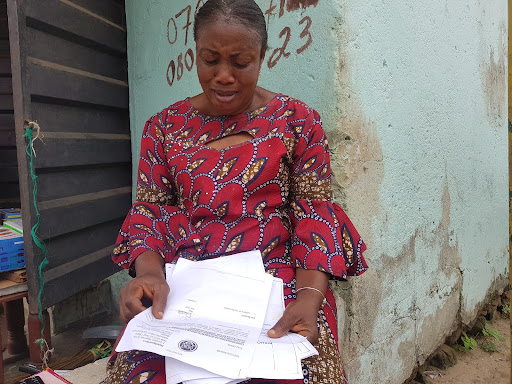
The rule says the Military Pensioners Board pays death benefits in batches as they are processed subject to availability of funds. While the board assured prompt, accurate, and efficient payment of these benefits to families of the deceased, those who spoke with HumAngle are yet to access these funds, in some cases, many years after completing the processes. This has further exposed families to a lot of hardship.
Terrible conditions in barracks
Bolajoko told HumAngle that putting food on the table for her children and accessing other basic life needs became increasingly difficult for her after her husband’s death.
“I got a tricycle on hire purchase and I was using it to do transportation business in the barracks to meet the needs of my children. I used to drive from the gate to the workshop.”
Asked if she ever made efforts to present herself to the army headquarters to complain about the official neglect, the widow replied, “I did on several occasions and sometimes sleep in front of their office without getting any response. There was a day I slept on the road and my children could not get food to eat that day.”
By the time she returned to Ojo Barracks, the owner of the tricycle had gotten another rider; hence, she returned to ground zero.
“I went to Alaba market in 2016 to learn how to become an electronics repairer. I learnt that for one year and got a loan which I used to start selling electronics.”
In late 2019, Bolajoko and her children were evicted from their house, a development that marked another beginning of horror for the family.
“I went to Alaba market on that fateful day that they evicted us but my neighbours started calling me around noon that some soldiers had broken into my apartment. Sadly for me, rain started falling as I was about to leave where I was. On getting to the barracks, I met my properties inside the rain.”
“Some of my valuables got spoiled as a result of the rain and I had to sell some of the properties because I had nowhere to keep them. My church members were supportive during the trying period. I looked for an uncompleted building in the same barracks and my church members gave me money to roof it. I have since been living there. I am living in pain and ensuring my two children go to school is not easy at all,” she told HumAngle.
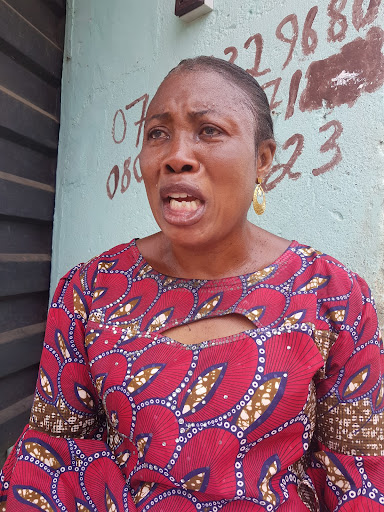
Bolajoko also told our reporter that a senior officer who volunteered to help her fast-track the process of getting her husband’s gratuity and entitlement demanded sex from her.
“They feel the best thing to appreciate us with is to ask us for sex. A senior officer once told me I should appreciate him if I want to get my husband’s insurance and entitlement. He said we should do it 50/50. I cried every time I remember this because the soldier is very young. This is my story and I hope somebody will help one day because even the scholarship they promised my children is not forthcoming.”
When asked to name the said officer, she simply said, “Mentioning his name might make it difficult for me to get my husband’s entitlement from them.”
More sad tales
Like Bolajoko, Emilia Orji is another widow battling with sex demands from soldiers in the barracks. Rejecting the sexual advancement of a captain at Ojo Barracks caused her more harm than good.
Emelia’s husband, Sunday Orji with the army number 04/55/1726, joined the military in 2004, met his wife in 2010, had two children together and the duo vowed to live forever — until 2015 when the sun set on the soldier’s life.

Before his death, Orji who was serving in Borno State always reached out to his wife and children daily. The habit suddenly stopped in mid-Aug. 2015. Concerned, Emelia visited the Bonny Camp army cantonment at Victoria Island two days later to ask about the sudden halt of her husband’s call.
She was, however, told days later that her husband died at the battlefront while combating Boko Haram. Expectedly, she was advised to start processing her husband’s gratuity being the NOK. Emelia told HumAngle she completed the process in due time but, five years later, no entitlement has been received.
Between the period of her husband’s death and now, she has visited the military pension department in Abuja more than six times but officials continue to tell her “to be more patient.”
As a Lance Corporal, her husband was receiving ₦55,000 as a monthly salary. The pay stopped three months after his death. Emelia borrowed money to start a petty trade in her quarters at Ojo Barracks but stopped months later due to unbearable credit purchases by soldiers.

She told HumAngle that “three soldiers came to me after the death of my husband. They said they will be assisting me with money to take care of my children if I decide to marry them. I rejected wholeheartedly because I was yet to get over the sad incident when they approached me at different times.”
“One of them even told me that if I can’t marry him, we should be friends and he would be taking me out to hotels if I was ashamed of what could be said by neighbours at the barracks. He cited cases of widows who are living fine because they have soldiers having affairs with them after the death of their husband.”
“A corporal said he knows somebody at the pension department but we have to do it 50/50 but I rejected it. I don’t know, maybe that’s why I am yet to get the necessary entitlement expected,” she cried.
Amidst the struggle for survival, Emilia lost her first child, Chukwuka. The eight-year-old boy had convulsions which led to memory loss. He eventually died after his mother could not raise money to take him to the hospital.

Even though she occupies a dingy room in a block of 10 flats at the barracks, some soldiers attempted to evict her in August. She, however, got the help of a superior officer who informed them that she was yet to get her husband’s entitlement.
Farming for survival
Many of the widows at Ojo barracks now engage mostly in farming for survival. While this has not been easy, they prefer it to begging for food from neighbours. One of the widows doing this business is Abigail Caleb.
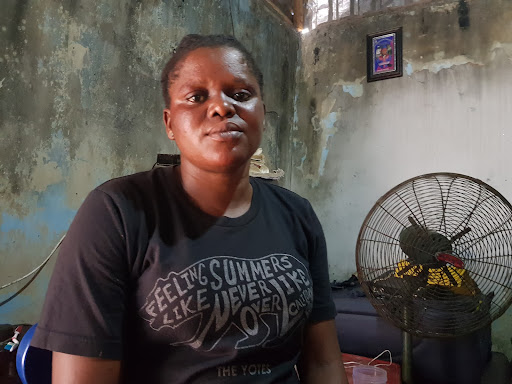
She met her husband Adamu Caleb in Taraba State in 2005 and they had two children before moving to Lagos. The widow told HumAngle her late husband was serving at 81d Bonny Camp in Kofo Abayomi before he died.
He was shot in the leg at a violent scene in Ikorodu in late 2017 and was taken to Yaba Military Hospital. He spent three months at the health facility but his condition only got worse.
“I was forced to take him to Taraba alongside his family members. Unfortunately, he died in Taraba leaving behind a 10-year-old boy and another eight-year-old girl. Before his death, he was paying me ₦25,000 to take care of myself and the children but three months after his death, the army stopped paying his salary.”
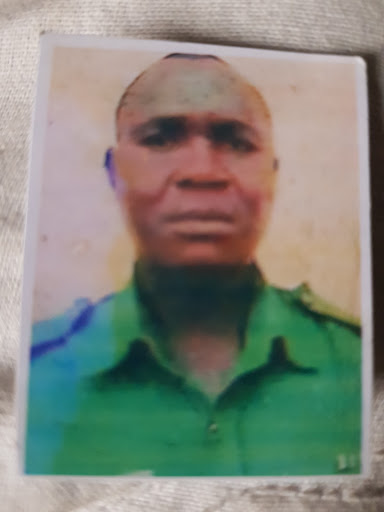
“I completed documentation of his gratuity a year after but nothing has been given to me. I am now into farm work to take care of my children. My children are in primary four and two respectively.”
She told HumAngle she was evicted from her apartment in 2019 by barracks authorities, saying “they wanted to give the room to another soldier and his family. I was not even at home when they packed loads out.”
“I went to Oyingbo to sell water leaf but before my arrival, I met my loads outside. My church people donated money for me to roof an uncompleted building where I occupy now,” she lamented.
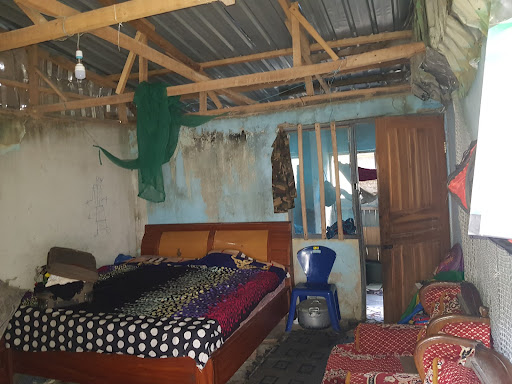
‘Only miracle can help me’
The same was the story of Corporal Garba Musa’s family. His widow, Josephine, now does farming to take care of their two children. The oldest child is a four-year-old and the second is a year plus.
“My husband died when I was four months pregnant. He didn’t get to see our second child. He was first serving here at 149 Battalion Ojo Barracks before he was transferred to Maiduguri in Sept. 2019.”
“Unfortunately, he died on Jan. 6, 2020, but the military didn’t reveal the cause of his death. I spoke with him the day before and he sounded good. I called and called the next day but no response. Some military officials then came to the house in the evening to announce his death.”
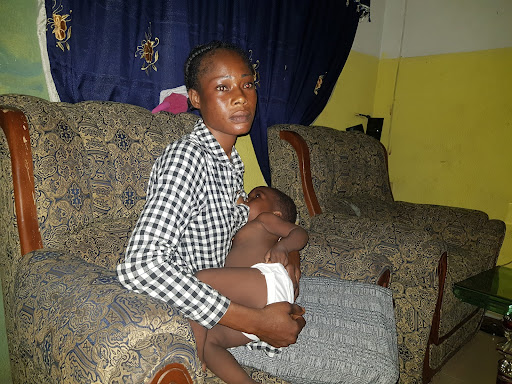
Three months after her husband’s death, the army stopped paying salary and the family has since been surviving with the farming business. Even though she had completed the necessary process for gratuity, nothing has been gotten from the military.
Speaking on life before her husband’s death, Josephine said, “He died as a corporal at the age of 38 and was collecting ₦60,000 as salary. He used to give me ₦40,000 from the money but [there has] nothing since he died. There was a time they took me to Ikeja to meet the wife of a Brigadier who gave us money and rice.
“Life has not been easy and fair to me. I always cry and nobody will help me. My children cannot go to school. I told the officials about sponsorship for schooling but they said they cannot get it. They said the scholarship is for kids above six years old. My mother is also a widow and I don’t want my mum to die early the way I lose my father and husband.”
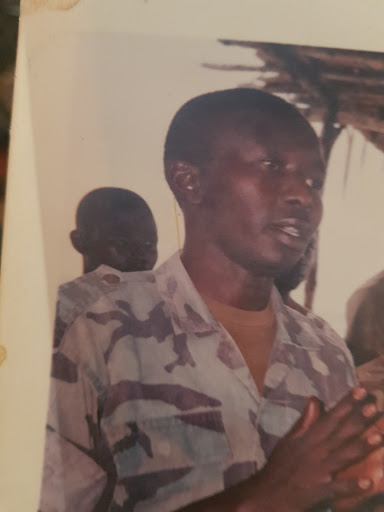
Evasive authorities, way forward
For two weeks, HumAngle made efforts to reach the military pension board for enquiries but could not get a response. Calls and emails sent to the board were not responded to. Our reporter also sent a representative to their office in Abuja but was not allowed to see Sabiru Lawal, chairman of the pension board.
Like the pension board, the Defense Headquarters spokesperson, Benjamin Sawyerr, did not respond to calls and text messages, the same encounter we had with army public relations officer, Onyema Nwachukwu.
Meanwhile, security experts and senior military officers told HumAngle that delay in payment of entitlement is not limited to widows of slain soldiers alone. They argued that most retirees have had to endure insufferable conditions to get their gratuities and pension.
“It is a big mess causing sleepless nights to many people, particularly retired soldiers. Just like the military treats widows, they do not care about many retirees either. The problem is mostly administrative and boils down to corruption in the military,” Owolabi Jimoh, a retired soldier, said.
Reacting to HumAngle’s findings, Karimot Odebode, a gender advocate, said, “Widowhood in Nigeria is terrible; not to talk of those whose husbands died serving Nigeria. We are aware that senior officers prey on them by asking them to rub their backs. We need to do better as a country to ensure that these widows get justice.”
Karimot urged the authorities to acknowledge that “the problem exists and then we can talk about a solution.”
“There is a need for a transparent agency to keep data of these widows so that we can easily sort the problem out. There should also be a timeline for the period when gratuity must be paid after the completion of the necessary processes. If there is a transparent board, there won’t be a need for calling on senior officers’ influence and nobody would have an opportunity to take advantage of helpless widows.
“Gender rights advocates also have roles to play by creating awareness. The military service is not a cult group, we need to let them know that we see them and we should even pursue these matters in court for widows to get justice.”
Support for this story was provided by the Media and Gender Project of Premium Times Centre for Investigative Journalism #CREATESAFESPACES.
Support Our Journalism
There are millions of ordinary people affected by conflict in Africa whose stories are missing in the mainstream media. HumAngle is determined to tell those challenging and under-reported stories, hoping that the people impacted by these conflicts will find the safety and security they deserve.
To ensure that we continue to provide public service coverage, we have a small favour to ask you. We want you to be part of our journalistic endeavour by contributing a token to us.
Your donation will further promote a robust, free, and independent media.
Donate HereStay Closer To The Stories That Matter





This is really pathetic and heartbreaking! How I wish the Nigerian government could see this and act! Howbeit, can you please explain how the husband of Mrs. Bolajoko Joseph married her in 1983 but died at age of 42 in 2012. From my calculation, someone who is 42 in 2012 was born in 1970. If Mr. Oladapo Joseph was born in 1970, that implies he was 13 years old when he got married in 1983. There is probably error somewhere I suppose.